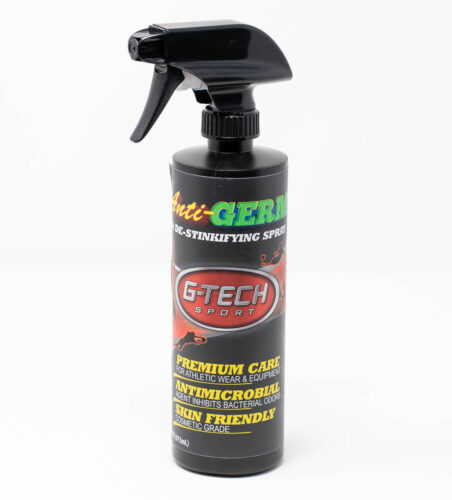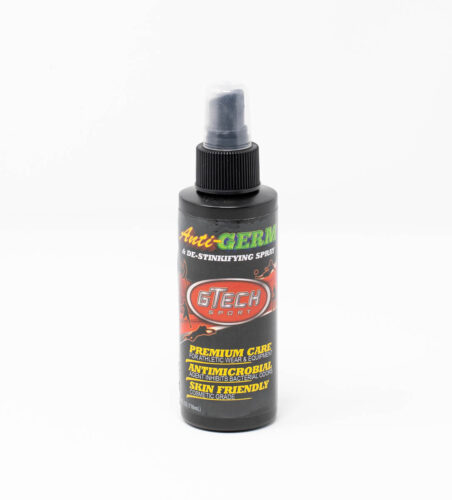If you are planning your next vacation or trip overseas, then one of the most important things you have to consider is your medication. Whether it’s pills to combat allergies or it’s something more serious like a breathing apparatus, it’s imperative that you understand what it will take to transport your medicine through customs.
With that in mind, we decided that we would look into all of the rules and regulations regarding traveling with medication so that you can be better prepared for now and into the future.
Because each country is different, we will focus most of our attention on bringing medicine through US customs, although we will cover some of the most common guidelines for international travel.
The most important thing to remember is that you have to be open and upfront about your medicine and why you need it so that there is no confusion wherever you are. Considering that this could potentially be a literal life or death situation, we want to make sure that you are well aware of the various complications that could arise.

Whether you are an American citizen or a foreign national, when you bring medication to the United States you fall under the jurisdiction of three separate agencies. These are the Food and Drug Administration (FDA), Customs and Border Protection (CBP), and the Transportation Security Administration (TSA). Although each agency has its own rules regarding medication, the authority of whether or not allow a medicine into the country falls to the FDA.
As a general rule, if you have your prescription with you filled out by a medical doctor, then you should be okay. This note should be in English, although you can also get it translated. However, that will take time to process, so for expediency’s sake, have it in English if possible.
With over the counter medications, the FDA may prohibit certain items from entering the country if they are on the the unapproved list. The reason for this is that they cannot verify that it was manufactured correctly, nor that it is considered safe and effective. For that reason, if you are planning on bringing generic medicine that does not come with a prescription, you would do better to find a similar brand while you are in the US.

For the most part, US agencies recommend a 90-day supply of any medicines that you may require during your visit. However, if you somehow run out and need more, then you have two different options. Unfortunately, both are somewhat difficult, so you will have to plan ahead if you think that you may need a refill.

As it stands, each state has different rules regarding whether or not a foreign national can even fill out a prescription while they are in the country.
If it is permitted, then you will have to contact your primary care provider, which could take time as they have to coordinate with local physicians to ensure that you get the medicine that you need. Also, what could happen is that you may be taking medication that is not available in the US, which means that they will have to find a substitute option which may or may not be as effective.

Generally speaking, you shouldn’t try this method because it will be quite complicated and could be more of a hassle than it’s worth. As a rule, the FDA does not allow any individuals to import medicine from a foreign country for personal use. The reason for this is again that they have not been able to test it for safety and effectiveness, and as such will consider it illegal.
Nonetheless, if there are extenuating circumstances, they may allow you to ship your prescription to the US. The following conditions are considered for each case, so plan on having to provide such information should the need arise.
- The medication is for a serious condition that cannot be treated in the US
- There is no marketing or promotion of the drug to US citizens
- The medicine does not pose a credible health risk
- You can verify that it is for your personal use
- You can obtain a letter from your doctor in English that confirms that you are refilling a prescription that began outside of the United States. Alternatively, you can also find a local physician who will monitor your usage of the drug during your stay
- Your supply is limited to three months (90 days)
If you can somehow manage to go through all of those hurdles, then you have to wait for your shipment to pass through customs and be inspected by an FDA agent. Unfortunately, this can take upwards of a month or more, depending on the situation. To expedite things, you can make sure that the package is marked for inspection and has a letter to the FDA on it. For best results, you will want to send it via a courier service so that they can verify the sender.

Another potential hurdle that you may have to overcome is the DEA.
This agency has regulations regarding the importation of controlled substances, so there is a slight chance that they may get involved in your case as well. However, since the FDA is the primary authority on prescription drugs, the likelihood of that happening is slim.

As you can see, bringing drugs into the United States can be a relatively simple process, provided that you have a doctor’s note written in English. However, for Americans who are planning on traveling overseas, you will have to make sure that you are not only abiding by US law but the local rules of the country in which you are visiting.

The first step in transporting your medication outside of the states is to bring it with you on the aircraft. According to the Transportation Security Administration (TSA), these are the rules regarding having drugs in your luggage.
- You do not need to notify a TSA agent of any drugs unless they are in liquid form.
- If your medicine is liquid, you are permitted to carry more than 3.4 ounces, provided that you have a doctor’s note to go with it. It may be subject to an additional search. Also, you do not have to put it in a plastic bag, as you would with other liquids.
- Pills and other solid forms of medicine can be transported in any amount as long as you allow them to be screened via x ray. In some cases, drugs may be subject to additional screening, and you may be required to open any containers.
- You can carry medicine in both your checked and carry-on bags without any problems as long as they are screened.
- Drugs do not need to be in prescription bottles, but some local regulations may stipulate any restrictions regarding containers used for medicine. It’s important that you check with your state and local municipality before traveling if you plan on using alternative means of transport, such as a pill box
- Nitroglycerin tablets and spray are not prohibited by the TSA

Each nation has its own set of laws regarding the transportation and importation of drugs, even for personal use. As a general rule, if you have your prescription with a doctor’s note (ideally in the language of the country you are entering), you should be okay to bring it in. Also, be sure to limit your supply to about one or two months, just to be safe.
For example, Japan allows you to bring a one-month supply of any prescriptions, and up to two months of most over-the-counter drugs, as long as they do not contain stimulants such as pseudoephedrine.
Nonetheless, it is always best to check with the country’s laws before you travel so that you don’t run into any surprises when you land. To do that, you can go to the US State Department’s website and look up country-specific information regarding medicine.

Overall, when it comes to traveling with medication, the important thing is to plan ahead.
If you want to take generic drugs such as allergy medicine or something else that you can find over the counter, it might be best to wait until you arrive at your destination. However, if you are taking a prescription that must be approved by a doctor, then it’s imperative that you look into the various restrictions that you may experience in other countries.
Some general tips to remember are as follows:
- Keep your medicine clearly labeled
- Bring a doctor’s note just in case
- Make a backup plan in the event that your drugs are confiscated
- Keep emergency contact information on your person
In the end, bringing medicine with you on your trip shouldn’t be more of a hassle than it’s worth. If you are worried at all, then do as much research as you can before you book your ticket so that you can put your mind at ease.
Do you want to learn more about air travel preparation for people with special needs? Do you have any questions or comments? Let us know on Facebook, Instagram or Twitter.

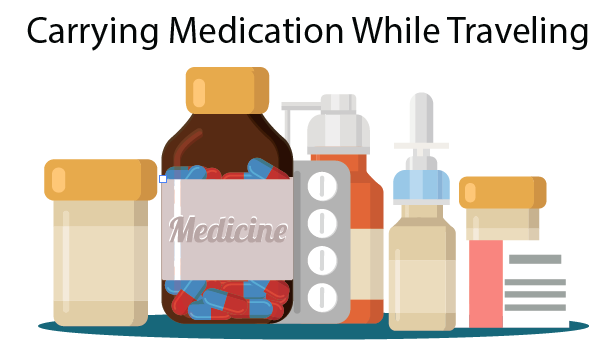
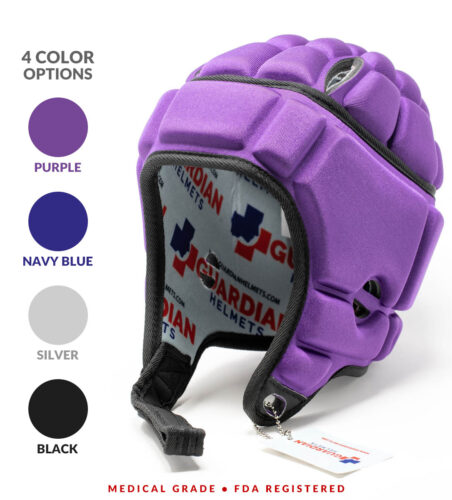 Guardian Soft Special Needs Helmet
Guardian Soft Special Needs Helmet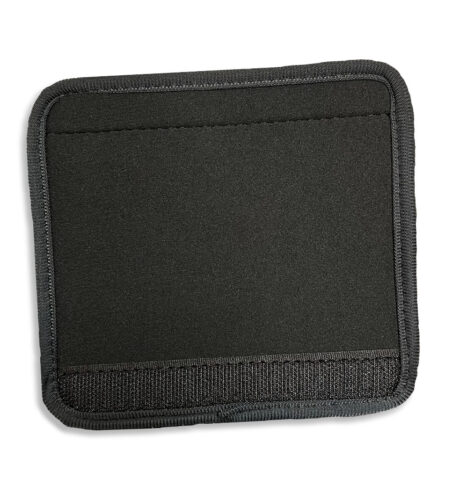 Locking Chin Strap For Guardian Helmets
Locking Chin Strap For Guardian Helmets
